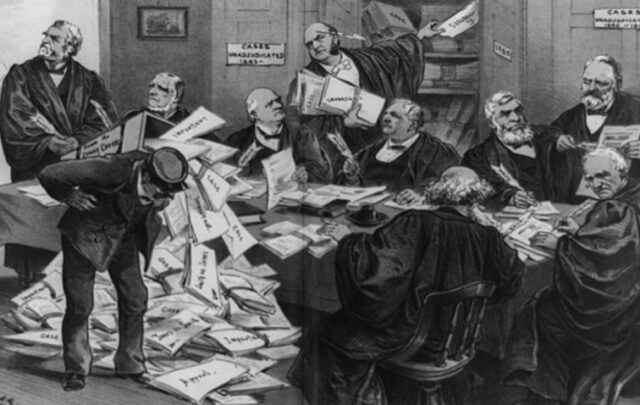Several posts of mine have sought to put the value of Earth’s biodiversity in context. The first of these leveraged the cute coincidence that all the animals on the planet are about the same weight as all the gold within 5 km of the land’s surface to make the case that animals are worth more than their weight in gold.
The next installment made a similar case for insects (arthropods, more generally), placing a premium economic value of at least $10,000 per kilogram of bug mass.
In this post, I ask: what would you be willing to trade for all animal life on this planet? It may seem like a forced and false choice, as nobody is proposing to eliminate all animal life on the planet. Despite this, we’re doing a dazzlingly good job of marching toward that very goal, whether explicitly intending to or not. Typical decline rates among vertebrates and insects are in the 1–2% per year ballpark; average decline in vertebrate populations is 70% since 1970; and a sixth mass extinction appears to have kicked off with extinction rates about 1,000 times the background rate. So, the prospect of losing Earth’s biodiversity is not purely hypothetical, thus deserving serious attention. I’ll have more to say about the validity of this approach at the end.
Meanwhile, are you ready to play the game?
Before diving in, we ought to pause to clarify what we’re being asked to consider. To be explicit, “all animal life on this planet” includes mammals, birds, reptiles, fish, amphibians, insects, worms, jellyfish, etc. The astute will have correctly noticed that humans are also animals—cast in with the mammal lot. Because the purpose of this post is to challenge typical human-supremacist attitudes of our culture, we will see what happens when we go along with the perversion that promotes humans off the list of animals for the sake of exploring the space.
The Trades
In each case we are talking about trading something of value to humans of modernity for all the non-human animals in the world. Initially, it may feel like meaningless false choices. But bear with me…
Gold
This mirrors the earlier post on exactly this trade. Gold is not necessary for life—human or otherwise. It’s pretty, makes a splendid electrical contact material, and fetches a high market price. Yet, presumably most people would be in favor of foregoing any gold in their lives if it meant that the animals were not fully exterminated.
Air Travel
What if we had to give up air travel in exchange for all the animals on the planet? Would we? No matter where you go, you won’t hear a peep from a bird or see anything cute and fuzzy. Would it feel empty to carry on traveling in a world devoid of animals? Children would only have stories (and photos, etc.) of mythical travel companions on this planet, unable to see any for themselves wherever they might go—and presumably would exhibit distress over the senseless eradication of all creatures. Would you feel okay about that trade?
Cars
How about cars? How important is it for us to maintain our current expectations around personal mobility, when all animal lives are at stake? Do animal lives matter?
Cities
What if it turned out we could not both live in modern cities and keep the animals of the world? Would we choose cities or our animal friends?
Smart Phones
Oooh—this one might finally hurt. Would you be able to give up your pocket rectangle if not doing so meant no more critters?
Your Own Life
After the shock of the smart phone, this one might be a little easier to contemplate. How do you feel about the value of your own life next to that of all the animals on the planet? How would the future fare or react to the loss of you vs. the loss of all the animals? Hint: we all die anyway, whether we like it or not.
The Human Species?
This will be a tough one. What is more valuable: millions of animal species or the one human species? I know, it hits close to home. Pretending for a moment that it would even be possible, would it make sense for humans to be the sole animal survivors on the planet? Would we be happy, or broken; tainted; a zombie animal, cursed by shame?
Is it Even a Legitimate Choice?
The first thing to address is: could we have cars, cities, smart phones, or even humans without animals on the planet? Animals are obviously important members of the community of life. Plants depend on animals for innumerable interactions and ecological services. A biodiverse community of life that co-evolved with animals will not fare well without them—at least not for some time until evolution adjusts. Many non-animal species would perish as a result, never to grace the Earth again. For millions of years, humans have been cradled and fed by the wild world. And despite all our technology, we are still utterly dependent on biologically-derived sustenance—still unable to eat electricity, no matter how “renewable.” The domino effect of ecological collapse that would accompany the removal of all animals would seem sure to wipe out humans in the aftermath. At least, I would not be at all keen to try the experiment. What madness would drive us there?
In this sense, the choices presented are false ones, in that we likely do not have the option to keep even the human species (and therefore our sacred technology/economy) without the presence of animals undergirding ecological health.
But the more likely charge of false choice in the exploration above is that it may seem “obvious” to many that we can have both—that we will not be forced to make such a silly choice. After all, we have technology now, and the animals are not gone (yet).
Working backwards in the list of trades above, I agree that we need not force a choice between the human species and the rest of the animal kingdom. Indeed, humans coexisted with a more-or-less stable animal population for millions of years. They are not inherently mutually exclusive—provided we stay in our ecological/evolutionary lane and don’t fly off on a technological juggernaut (oops). Then, obviously, if humans themselves can live peaceably within the community of life, you need not sacrifice your own life for the survival of the animals. Whew! Those two were presented mostly to invite a value assessment over what’s important in this world. Does the world lack meaning or value without yourself? Without humans? I recognize that we might arrive at different conclusions on the last one. Some may well believe that there would be no point in the survival of millions of species if humans were not here, too (thus rendering 99.9% of Earth’s biological history as stupid, except in that it led to humans). So it goes in a human-supremacist culture: we’ll get plenty in that camp.
Yet, can we indeed have smart phones, cities, cars, air travel AND keep the animals? Obviously we have both right now. But not so fast in generalizing a conclusion. On the relevant timescale (that of evolution), we simply don’t know. We don’t know. Let that sink in. We don’t know. No one has ever tried, and current trends aren’t at all inspiring.
The animals may not be gone yet, but they are closer to gone than the pre-modernity not-gone state, and rapidly declining. Extinctions and population losses are off the charts. If animal populations were even close to holding stable, the modernity boosters might have a solid point. Sadly, they don’t. So maybe shut up? Let a crack of wisdom in? Recognize that we’re up against something bigger than technological fetishism and more real than fantasies of transcendence.
To What End?
The decline rate of animal populations is scary enough on its own—made only worse by consideration of tipping-point arguments involving unknown interdependencies in which each species to some degree relies on the health of numerous other species to thrive in an ecological context. The fox population might hold out for a while in hard times of failed litters and starvation, managing to claw its way along—sensing that something big is not right. But as insects fail and birds fail and fish fail and no one seems to be holding it together, an especially bad year after decades of worsening bleakness can finish the job.
It is clear that we cannot keep doing what we have done over the last century or so and expect things to just work out (absurd; unhinged; juvenile; diabolical). At what point is the ecological fabric so tattered as to lose its integrity and rip? Are we indeed witnessing the start of such a rending tear as the sixth mass extinction gets underway?
Compared to biologically-relevant timescales, the human explosion commenced just “yesterday” when grain agriculture began taking root. As was explored in an earlier post, the transition from essentially zero human population growth to just 0.04% per year set the stage for planet-crushing present-day human populations in a time that is still contextually short. Each “improvement” like cities and technology only accelerated the rapidity of the unsustainable ascent. Mounting ecological damage was part and parcel of this expansionist story long before cars, planes, and smart phones arrived—like two sides of a coin.
Today, the growth acceleration continues. To take a recent addition to the arsenal, artificial intelligence is nothing more than a giant modernity parrot, containing zero wisdom. It is a tool that serves the capitalist market system quite well as people scramble to monetize its mediocre capability, resulting in more exploitation of the natural world. Nothing about it is causing people to scale back, or to recognize the error of our ways. Why would the Human Reich use any such tool to dismantle itself?
Energy transition aspirations are similar. The goal is powering modernity, not addressing the sixth mass extinction. Sure, it could mitigate the CO2 threat (to modernity), but why does the fox care when its decline ultimately traces primarily to things like deforestation, habitat fragmentation, agricultural runoff, pollution, pesticides, mining, manufacturing, or in short: modernity. Pursuit of a giant energy infrastructure replacement requires tremendous material extraction—directly driving many of these ills—only to then provide the energetic means to keep doing all these same things that abundant evidence warns is a prescription for termination of the community of life.
So, color me skeptical that modern technology is compatible with long-term ecological health. The cliff edge we are presently falling over provides a frightening caution that the present mode is patently unsustainable and therefore barreling toward compulsory failure.
Thus, maybe the choice is not a false one after all. If we value the animals above our devices and conveniences, than maybe we ought to act like it—because it is far from obvious that we can have our cake and eat it, too. What fool would even risk it?





